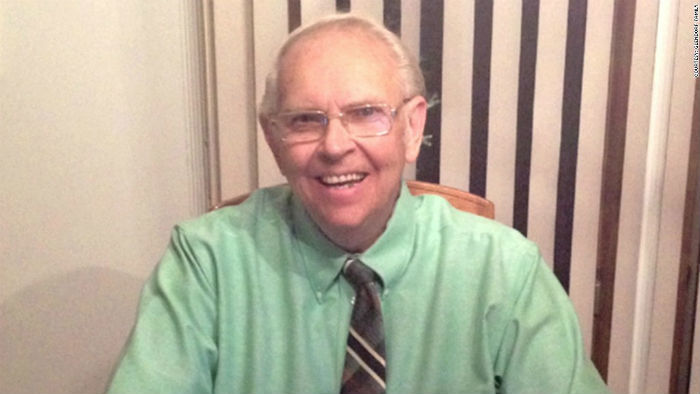Retirement Hobby: How a 77-year-old trader made millions in the stock market

Recently, much has been said and written that stock markets are taking over mathematical geniuses and traders who use quantitative analysis algorithms. Moreover, there is even a trend when trading on the stock exchange becomes something of a hobby for IT professionals working in various companies.
But the old guard is not giving up. CNN told the story of a seventy-seven-year stock exchange guru who predicted the crisis of 2008 and proved that the “good old” investment methods still work and bring good income.
')
In his 77 Paul Glendorf and not closely resembles a typical Wall Street trader. In clothes he prefers casual style. He lives in Ohio. He talks about his work as if he was invited to chat on a popular TV show, CNN journalists write.
In narrow circles of financiers, he became known in 2013, when he took part in the competition of investors. Each participant was offered to invest in stocks of five companies to choose from, and at the end of the year they calculated the profit. Glendorf's portfolio brought him a solid 71% of revenue. Four of his bets were played unconditionally: LinkedIn, 3D Systems, Fidelity National and Valeant Pharmaceuticals. The last was the company Lululemon - seller of equipment for yoga. She slipped by the end of the year by 20%. Glendorf had to be content with second place.
He studied the rules of the game on the market, having already retired at the beginning of the two thousandth. He started his career as a plumber, then there was a rather successful construction business in Cincinnati, Ohio - there was simply no time left for self-indulgence, like stocks. But as soon as the time approached to go on a well-deserved rest, Glendorf began to wonder what would happen to his savings. Perhaps he could manage his capital better than graduates.
At 60 years old, he opened a club that he and his colleagues called “Stock Gurus” - it was a joke of pure water, none of the club members had any idea about the stock market. “In this life, you need to be able to laugh at yourself,” says Glendorf. 15 people came to his first meeting at an evening school for plumbers. This investment club is still active, although it has moved to a modern business center.
Glendorf himself became a local legend. Here he is called the "ohio oracle", which, according to his fans, should put him on a par with another celebrity of the stock market - Warren Buffet, nicknamed the "omacle of omaha".
In 2013, Glandorf's investment income was 57%. Even taking into account the favorable situation on the market, he managed to bypass the S & P 500, which showed an increase of 30% for the year. Since 2001, when he took over the management of his own fund, he has not had a single significant failure. So he does everything right.
Glendorf says that his portfolio contains from 75 to 80 sets of shares, in each of which he invests an average of $ 10 thousand. That is, the total amount of his working investments each time ranges from $ 750 to $ 800 thousand. Thus, the amount he earned for all investment time is several million dollars.
He himself argues that he uses only the fundamental and technical analysis of shares of stocks of companies, often without even knowing their names.
His investment philosophy goes back to the days when he was a small business owner. Its essence is to encourage competition. In his work as a trader, he uses an online program to study stock markets - MarketSmith . He prefers to buy stocks and hold them for a while. Nevertheless, he enters the program's website on a daily basis and launches a sample of a dozen companies that should have good potential, based on his own financial criteria.
Companies that are in the sample are on the waiting list. Glendorf sends information about them to friends, relatives and members of his investment club. He himself prefers to invest only in stocks demonstrating “aggressive growth”, leaving his partners the opportunity to play at short intervals.
Glendorf says that 80% of the stocks of companies he chooses make a profit, 20% - unsuccessful investments. He argues that this ratio is more or less constant in time. Except for the situation in late 2007.
But he can consider the prediction of the Great Recession, the 2008 financial crisis, to be his biggest achievement. In 2007, he received 50% of the profits and then almost completely left the market. The most difficult moment, according to his confession, was to understand when the time came to re-enter the game.
Today, his favorites include Illumina, Alexion Pharmaceuticals, Actavis, and United Rentals. All of them grew by more than 20% in 2014. Illumina scores 50%.
He pronounces the exchange codes of companies over the phone, recognizing that they often do not even know what they are doing. But he knows their income history, their forecasts, and such indicators as price / net profit.
Another iron rule that he adheres to is: never invest in bonds. Glendorf is currently pleased to teach other people to invest. The first thing he advises is to invest as much as it is not a pity to lose.
Source: https://habr.com/ru/post/391675/
All Articles